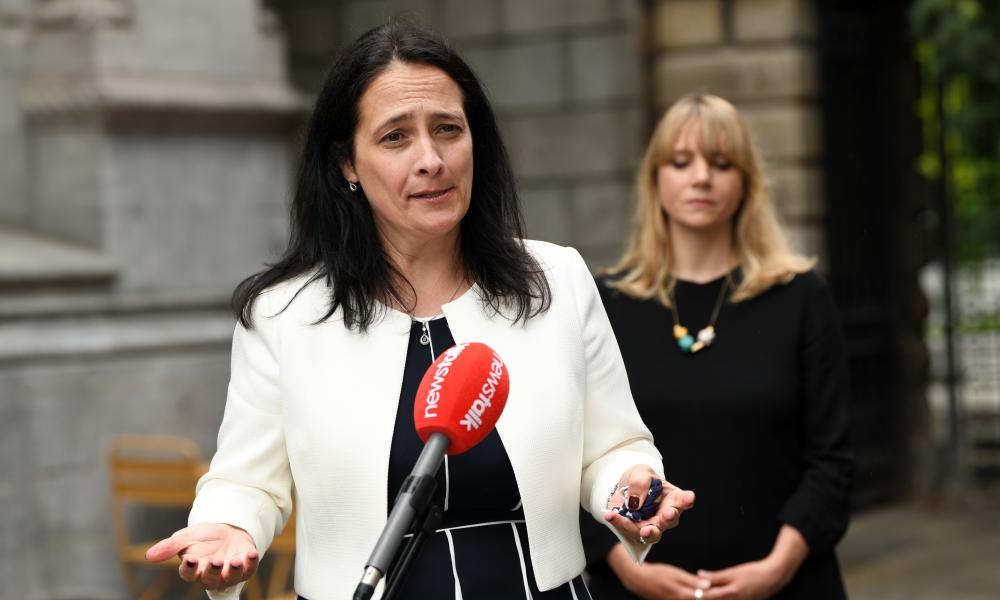We need to do much better for girls and women in Ireland - second report of the Well-being Framework reveals

The second report on Ireland’s Well-being Framework has been approved by cabinet and was today (2nd June) published along with the well-being dashboard, outlining Ireland’s progress across 35 indicators. The introduction of the Well-being Framework is a Programme for Government commitment secured by the Green Party. It seeks to look beyond using economic measures alone to gauge progress as a country by encompassing broader markers of living standards and sustainability.
While there are largely positive indications of well-being and quality of life for adults in Ireland, the indicators for women and girls are markedly below those of men and boys.
Catherine Martin TD, Minister for Tourism, Culture, Arts, Gaeltacht, Sport and Media, and long-time campaigner for women’s rights stated;
“The second report of Ireland’s Well-being Framework reveals that women experience inequality across the majority of indicators compared to men. In a review of data ranging from 2018 – 2020, a higher proportion of females have reported depression, an unmet need for medical attention, and a higher rate of concern that they could be a victim of a physical crime.
“The Green Party has long fought for the introduction of well-being indicators to inform our national policies and budgets. While today’s findings are a stark reminder that we need to do much better for girls and women in Ireland, this framework is now giving us additional tools to make better decisions on priorities and spending going forward. As government leaders and legislators, it is our duty to put the lived experience of women and girls at the forefront of policy and budgetary decision-making. A key goal of mine as a Minister is to further gender equality within every sector under my remit, and to collaborate closely with my government colleagues to drive change across other key departments.”

This framework is now giving us additional tools to make better decisions on priorities and spending going forward.
The report indicates that other factors that reduce the overall well-being of women include lower salaries and lower levels of satisfaction with their use of time compared to men. It was also found that a lower proportion of school-aged girls are happy with their life compared to boys.
Senator Pauline O’Reilly, Vice-chair of the Select Committee on Gender Equality said;
“The introduction of the Well-being Framework for Ireland is enabling us to bring to the surface key issues we need to address to make this a great country in which to live and bring up a family. It is gut-wrenching in this day and age to see young girls and women continue to struggle because of their gender. In order to achieve an equal Ireland for every woman, we must reassess the social norms, attitudes and barriers across society around childcare, pay, gender-based violence, political representation and more. I am committed through my work with my colleagues in the Green Party and on the Committee for Gender Equality, to realise the changes needed to make this vision a reality.”
The development of a Well-being Framework for Ireland marks a shift in how progress is understood and measured. While it already informs policy and budgetary considerations in countries such as New Zealand, Germany and Iceland, it is a novel approach in an Irish context and embedding the framework is expected to develop over time.
Green Party MEP Grace O’Sullivan, is the European Parliament’s lead negotiator on the Environment Action Programme and has been prominent in securing a commitment to a Well-being framework at European level;
“The Well-being Framework is a really important cross-government initiative that is fundamentally about improving people’s lives by better understanding their lived experience. It's vital that a Wellbeing Economy becomes the new economic model, not only in Ireland, but at a European level. Measuring 'success' with indicators like GDP is outdated as we move towards more sustainable ways of living and doing business. Through my work in the EU, I was successful in securing, for the first time in European legislation, a binding commitment for the EU to advance toward a Wellbeing Economy. As part of this, the Commission must produce a 'beyond GDP' dashboard to help us assess progress in more than just monetary terms, instead looking at human and planetary wellbeing.”


